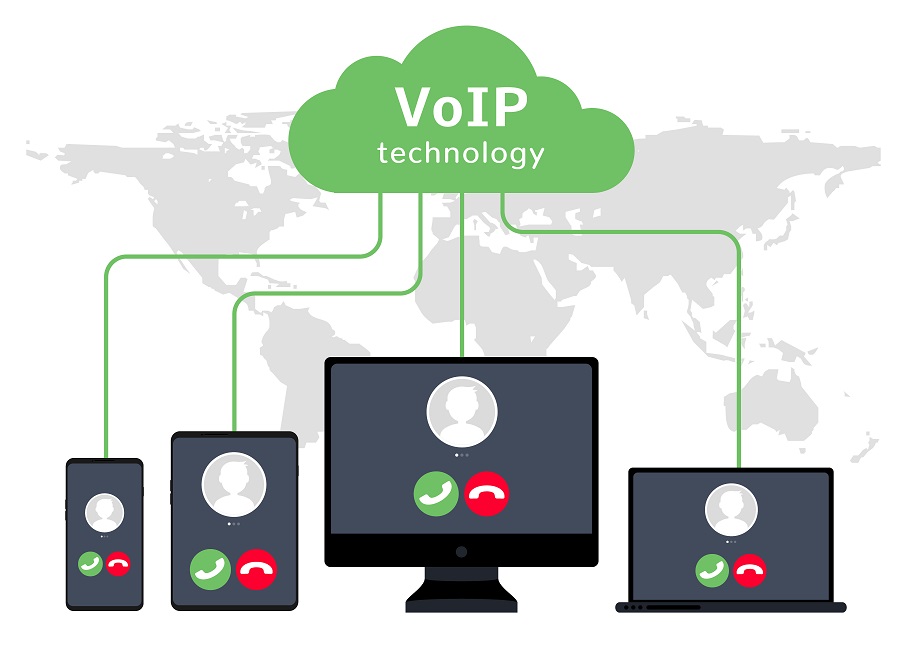How Frank McCourt wants to fix TikTok
Next week, TikTok’s parent company, ByteDance, goes to court as the U.S. government pushes to force the sale or shutdown of the popular app. One potential buyer, Frank McCourt, Executive Chairman of McCourt Global and former LA Dodgers owner, wants a different experience for TikTok’s 170 million users. For McCourt, the surveillance in tech has caused a crisis, and he’s ready to fix it. Here’s how he plans to right the wrongs of the digital age. This is an abridged transcript of an interview from Rapid Response, hosted by the former editor-in-chief of Fast Company Bob Safian. From the team behind the Masters of Scale podcast, Rapid Response features candid conversations with today’s top business leaders navigating real-time challenges. Subscribe to Rapid Response wherever you get your podcasts to ensure you never miss an episode. Next week, a U.S. appeals court is slated to hear arguments on a law that would ban TikTok here in the U.S. There’s fear that TikTok enables the Chinese government to spread propaganda and essentially spy on U.S. citizens. You’ve stepped up to say you’d buy TikTok, even without the algorithm that’s driven its success. But before we get into that, do you think TikTok in its current form poses a national security risk? Yeah, absolutely. It does. I have the privilege of seeing most of the briefing that was shared with Congress before the legislation was quickly passed. Look, Bob, I’ve been working on this for over 10 years, and I didn’t think I could be more alarmed than I was when I saw that briefing. It’s massive surveillance technology. Our own American platforms are essentially doing the same thing. The difference here, of course, is that this is a Chinese platform controlled by a government that is not pro-democracy. We now know that a vast majority of young people get their news, not just entertainment, from TikTok. This is the greatest piece of propaganda machinery ever built. When you see how sophisticated it is in dialing up things the Chinese government would like young people to believe and dialing down things they don’t want them to believe, it’s quite alarming actually. So there’s no doubt in my mind that it’s a national security threat. I think the more core issue, however, is do we really want to live in a world where this awesome internet technology, which can do great things, is designed in such a way that it’s surveilling us, scraping our data? Do we really want to be manipulated by a few companies? I, for one, do not. I think it’s crazy we’ve gotten to this point, but here we are, and it’s beyond time that we address it. The facts, as you describe them, against TikTok make it sound like the legal case is sort of a no-brainer, like it’ll be a slam dunk. How closely are you following this legal case? There is still doubt about it? We’re watching it very closely. The case is about the legislation that was passed, and ByteDance is making a First Amendment argument—an argument around free speech. The legislation was just belt and suspenders. When all our national security agencies come forward with findings that something—in this case, TikTok—is a national security threat, there is an ability to force the company to divest the asset or to shut it down. That’s the case here with TikTok. The legislation is a bit of a sideshow. Nice to have, but not necessary. But nonetheless, we’re watching it closely because I think this is the biggest issue of our age—not just TikTok, but the fact that we’ve now become slaves to this technology rather than being masters of it. As a TikTok user, would I access the internet through whatever you renamed TikTok, and would that protect my identity when I was everywhere else. But TikTok itself wouldn’t perform the same kind of function it does for users now? It would actually be very similar from a user experience perspective. There will be algorithms involved and possibly advertising involved, but all done with transparency, agency, and permission. Value will be shared with the users who are actually creating the data and content. So, the user experience will be very similar. If you acquired TikTok without its algorithm that ByteDance owns, you get access to these millions of users but wouldn’t it be kind of a hollowed-out version of the experience for those users? No, as I said earlier, there will be algorithms, and there will probably be multiple. People will be able to curate how they interact with them. But not the same algorithms that have driven TikTok’s success to this point? Yeah, and we met early on with the top influencers on TikTok and top creators—20 of them who touch over a hundred million of the 170 million people. We had dinner with them in Malibu, California. I was very curious to hear from them about how they were reacting to our bid. It was interesting because they were very excited because they’re frustrated with TikTok. They’re building community, but they don’t know who it is. They h

Next week, TikTok’s parent company, ByteDance, goes to court as the U.S. government pushes to force the sale or shutdown of the popular app. One potential buyer, Frank McCourt, Executive Chairman of McCourt Global and former LA Dodgers owner, wants a different experience for TikTok’s 170 million users. For McCourt, the surveillance in tech has caused a crisis, and he’s ready to fix it. Here’s how he plans to right the wrongs of the digital age.
This is an abridged transcript of an interview from Rapid Response, hosted by the former editor-in-chief of Fast Company Bob Safian. From the team behind the Masters of Scale podcast, Rapid Response features candid conversations with today’s top business leaders navigating real-time challenges. Subscribe to Rapid Response wherever you get your podcasts to ensure you never miss an episode.
Next week, a U.S. appeals court is slated to hear arguments on a law that would ban TikTok here in the U.S. There’s fear that TikTok enables the Chinese government to spread propaganda and essentially spy on U.S. citizens. You’ve stepped up to say you’d buy TikTok, even without the algorithm that’s driven its success. But before we get into that, do you think TikTok in its current form poses a national security risk?
Yeah, absolutely. It does. I have the privilege of seeing most of the briefing that was shared with Congress before the legislation was quickly passed. Look, Bob, I’ve been working on this for over 10 years, and I didn’t think I could be more alarmed than I was when I saw that briefing. It’s massive surveillance technology. Our own American platforms are essentially doing the same thing. The difference here, of course, is that this is a Chinese platform controlled by a government that is not pro-democracy.
We now know that a vast majority of young people get their news, not just entertainment, from TikTok. This is the greatest piece of propaganda machinery ever built. When you see how sophisticated it is in dialing up things the Chinese government would like young people to believe and dialing down things they don’t want them to believe, it’s quite alarming actually. So there’s no doubt in my mind that it’s a national security threat. I think the more core issue, however, is do we really want to live in a world where this awesome internet technology, which can do great things, is designed in such a way that it’s surveilling us, scraping our data? Do we really want to be manipulated by a few companies? I, for one, do not. I think it’s crazy we’ve gotten to this point, but here we are, and it’s beyond time that we address it.
The facts, as you describe them, against TikTok make it sound like the legal case is sort of a no-brainer, like it’ll be a slam dunk. How closely are you following this legal case? There is still doubt about it?
We’re watching it very closely. The case is about the legislation that was passed, and ByteDance is making a First Amendment argument—an argument around free speech. The legislation was just belt and suspenders. When all our national security agencies come forward with findings that something—in this case, TikTok—is a national security threat, there is an ability to force the company to divest the asset or to shut it down. That’s the case here with TikTok. The legislation is a bit of a sideshow. Nice to have, but not necessary. But nonetheless, we’re watching it closely because I think this is the biggest issue of our age—not just TikTok, but the fact that we’ve now become slaves to this technology rather than being masters of it.
As a TikTok user, would I access the internet through whatever you renamed TikTok, and would that protect my identity when I was everywhere else. But TikTok itself wouldn’t perform the same kind of function it does for users now?
It would actually be very similar from a user experience perspective. There will be algorithms involved and possibly advertising involved, but all done with transparency, agency, and permission. Value will be shared with the users who are actually creating the data and content. So, the user experience will be very similar.
If you acquired TikTok without its algorithm that ByteDance owns, you get access to these millions of users but wouldn’t it be kind of a hollowed-out version of the experience for those users?
No, as I said earlier, there will be algorithms, and there will probably be multiple. People will be able to curate how they interact with them.
But not the same algorithms that have driven TikTok’s success to this point?
Yeah, and we met early on with the top influencers on TikTok and top creators—20 of them who touch over a hundred million of the 170 million people. We had dinner with them in Malibu, California. I was very curious to hear from them about how they were reacting to our bid. It was interesting because they were very excited because they’re frustrated with TikTok. They’re building community, but they don’t know who it is. They have no visibility. When they put a piece of content out and there’s a big reaction, they don’t know why. When they put another piece out, there’s no reaction to it. They’re subject to a black box. They’re very interested in a TikTok platform where they can build community, not just create content.
There’s a saying, Bob, in technology: big data, small algorithm will beat big algorithm, small data any day. So, the 170 million users, what can be created there with different algorithms, which respect individuals, I think will be fantastic.
I’m curious, do you use TikTok personally? Are there social platforms that you use more or less?
From day one, I felt this was a lousy deal—give up all my data, all my information for what? A free app. So I have abstained from social media from day one.
People might wonder, can you really understand the social media platform and what it is if you haven’t used it yourself? If you’re not as personally familiar with it?
I think it’s a definitely valid question and concern, for sure. But if hardcore social media users or technologists or computer scientists were going to fix this problem, wouldn’t they have by now? Am I telling you something in this conversation that you don’t already know? For me, I think there’s a benefit in having an outsider’s perspective. If the CEOs of these tech companies were going to change, I think we would have seen that by now. If our elected officials were going to get ahead of this problem, we would have seen that occur already.
This is way, way, way bigger than just a conversation about algorithms or protocols. This is about how we want this awesome, powerful technology to be used to make people’s lives better. This is a crisis. We need to start treating it like that and not be fooled by these arguments that everything’s fine, this is just a First Amendment issue, and this and that. Really? Mark Zuckerberg is now a victim? He’s a victim of the Biden administration’s pressure? Mark Zuckerberg is a victim? That’s where we’re at here? How many more pieces of testimony do we need to hear? How many more whistleblowers do we need to hear? And we’re constantly being deflected over the margins by people who don’t want us to deal with the issue at its core.
It sounds like TikTok presented itself as a potential way to accelerate the movement you’re advocating. If you can’t acquire TikTok, are you already looking for another vehicle to accelerate things, or is it sort of a case where either TikTok works or you go back to more basic blocking and tackling that you were doing prior?
Yeah, well, we continue to do the blocking and tackling. We’re betting that, ultimately, TikTok will not be shut down and it will be sold. I’m talking about U.S. TikTok. We might be wrong, but that’s what we’re betting on. There are a lot of investors in TikTok that would like to see some future value derived from TikTok U.S., rather than it being shut down. There are 170 million Americans who enjoy using it. We want to see it continue as well.
Now, at the same time, I don’t know for sure whether TikTok is going to be sold. I don’t know for sure that we’ll be the successful bidder if it is. So, we continue to do the work that needs to be done to go ahead and create this alternative internet. I’ve committed half a billion dollars to help seed the effort and make it happen because I’m concerned. I’m concerned about our business that’s been going on for 131 years, which I don’t think will survive if democracy fails. I have seven children—four grown boys who are pre the big harms of social media, but I have three young ones who are now approaching this.
And this is a really serious thing. Once you see a problem, you can’t unsee it. I think we’re doing good work, and if someone is doing better work than us, we’re going to embrace that work. This isn’t about being right; it’s about getting it right, and then we’ll get back to our core businesses.






















